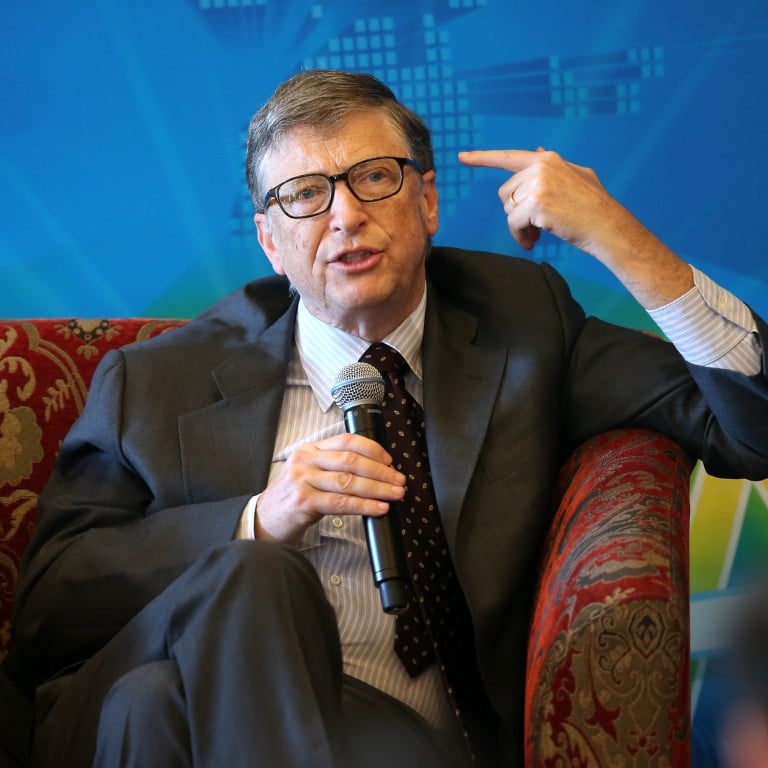
Bill Gates tells China to learn from Japan's mistakes when it comes to innovation
China should learn from the US and Japan's mistakes and successes when it comes to the country's state-led artificial intelligence research project, Microsoft founder Bill Gates said on Sunday.
"It's fantastic that China is stepping up to fund more basic research, whether it's in medicine or computer science ... President Xi talks a lot about the importance of innovation. So China has a lot to contribute," Gates said in a breakfast panel with Li and Tesla chief executive Elon Musk on technology and innovation for a sustainable future at the Boao Forum in Hainan province this weekend.
"You have to be careful how you structure the government's relationship with innovation," Gates said.
"In Japan, they picked some very specific goals and approaches for their so called 'Fifth General Project'. It was the wrong way to go," he said, referring to an initiative by Japan's Ministry of International Trade and Industry in 1982.
A massive government and industry research project spanning the 1980s, it aimed to create an "epoch-making computer" with supercomputer-like performance, and to provide a platform for future developments in artificial intelligence.
However, the project did not have commercial success and the architecture was surpassed in speed by less specialized hardware made by Intel. At the end of the ten-year period, the project had spent over ¥50 billion (about US$400 million at 1992 exchange rates) and was terminated without having met its goals.
"In the 1980s, the US was feeling like 'OK Japan is better than us, they know how to make things better than us, they know how to plan the government, their television is better than us'," Gates said.
"And actually it was a very good period for the US."
Gates said that work done in American universities and institutes in the 1980s laid "the foundation for so many events, including the PC and the internet".
"The way [the US government] did the computer science stuff was backing dozens and dozens of different approaches and having contests. I would recommend not doing what Japan did and looking at why the US model ended up the best," he said.
Musk also said it was important for China to have an environment that fostered innovation.
"You want to let it evolve in an Darwinian way, as opposed to having high-level government officials pick big technology to develop because they may not be worth it," he said.
The rest of their discussion touched on driverless vehicles and whether people should beware of AI as a potential threat to the human race.
Li proposed in his capacity as a delegate to the Chinese People's Political Consultative Conference (CPPCC) this month that the mainland establish the "China Brain" project, hoping that China's military would support efforts that might make the nation a world leader in AI-related research.
The project would be a massive state-level initiative comparable to the Apollo space programme undertaken by the United States to land the first humans on the moon in 1969, Li said on Sunday.
"The US government, especially the military, played an important role in the advancement of technology, for example project Apollo. That generated a very large and steady demand for microchip which benefitted laboratories for Silicon Valley companies like Intel," he said.
"We're hoping to build the largest AI infrastructure so that companies, entrepreneurs and universities can do research on this platform."
Under Li's proposal, the project would focus on specific research areas: human-machine interaction, big data analysis, automated driving, smart medical diagnosis, smart drones and robotics technologies for both military and civilian use.
But the platform should take a market approach and yield actual results and products. It should also "be kept open and competitive, rather than being made only available to select research institutes," he said previously.
